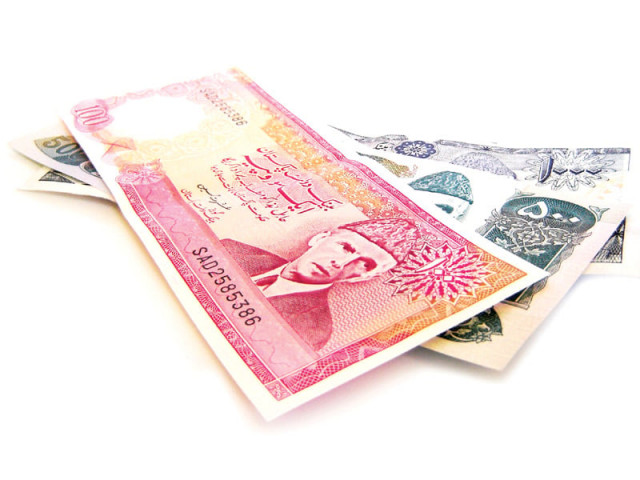The falling rupee
IMF, in its review on Pakistan’s economy, implied that the rupee was overvalued. Hence, a correction was needed.

A SBP official “credited” the political demonstrations in the capital as the reason behind the decline, which is difficult to fathom. According to an analyst, the recent decline in rupee is driven primarily by sentiments on the country’s economic outlook. Have the ongoing protests led to a decline in the supply of dollars or caused a sudden surge in demand? Neither seems to be the case. While there could be unwillingness to trade dollars in the market, saying that political uncertainty is the sole reason for the decline is an argument hard to swallow. The KSE-100 index shed points due to the protests because investors panicked. Is it the same case with dollars?
The analyst notes that the SBP has decided not to intervene since a correction was needed. Overvaluing the rupee — which the central bank attributed to one-time inflows — also led to a widening trade deficit. The current account deficit has also widened. The International Monetary Fund, in its review on Pakistan’s economy, implied that the rupee was overvalued. Hence, a correction was needed. Maybe that is why the SBP has decided not to act. While it may increase inflation due to a higher import bill — that constitutes oil also — it would help the government meet its export target. The SBP’s reserves are higher than what they were. But maybe, the political turmoil is holding SBP tight.
Published in The Express Tribune, August 24th, 2014.
Like Opinion & Editorial on Facebook, follow @ETOpEd on Twitter to receive all updates on all our daily pieces.


















COMMENTS
Comments are moderated and generally will be posted if they are on-topic and not abusive.
For more information, please see our Comments FAQ